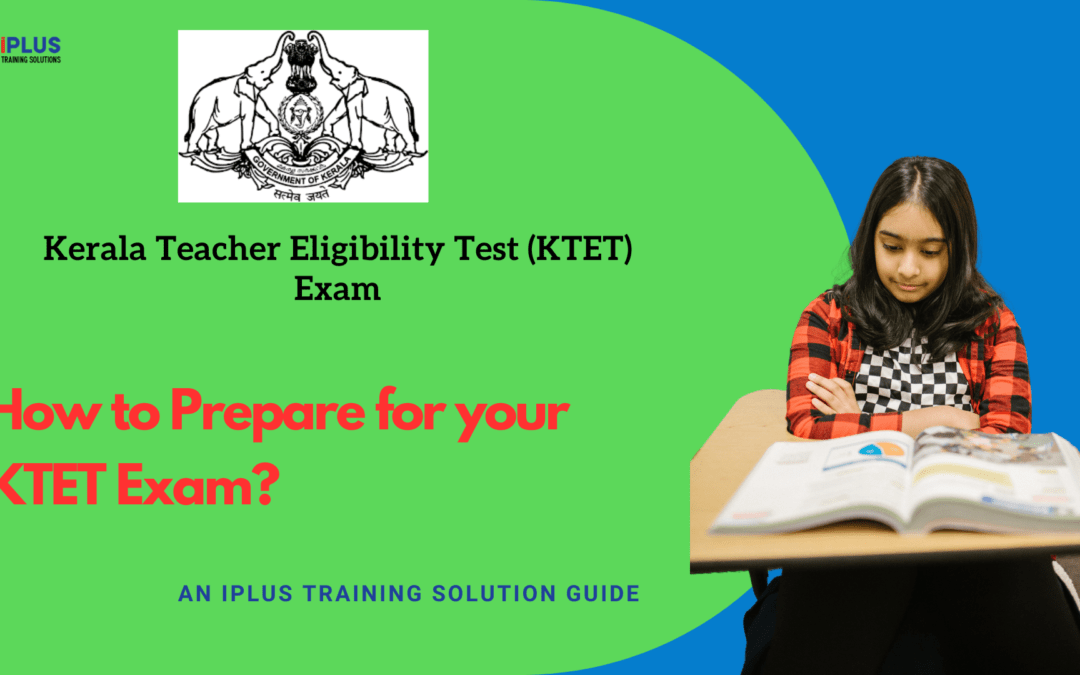How To Prepare for Your (Kerala Teacher Eligibility Test) KTET
1. What is KTET?
The Kerala Teacher Eligibility Test (KTET) is a state-level eligibility test for candidates who wish to become teachers in Kerala. The test is conducted by the Kerala Pareeksha Bhavan. The test evaluates a candidate’s ability to teach at the elementary and secondary school levels.
The KTET is divided into four categories, each of which has a different syllabus. Category I is for candidates who wish to teach at the lower primary level (classes I-IV). Category II is for candidates who wish to teach at the upper primary level (classes IV-VII). Category III is for candidates who wish to teach at the High school level (classes VIII – X). Category IV is for language teachers up to the upper primary level and for sports/ arts teachers.
2. Who is eligible to take the KTET?
Each category of KTET has different eligibility criteria. The general minimum eligibility criteria for each category are mentioned below:
- For KTET Category I, candidates must have passed Higher Secondary and possess a TTC/ D.Ed/ D.El.Ed qualification.
- For KTET Category II, candidates must have a bachelor’s degree and possess a TTC/ D.Ed/ D.El.Ed qualification.
- For KTET Category III, candidates must have a bachelor’s degree with a minimum of 45% marks and possess a B.Ed qualification.
- For KTET Category IV, candidates must have a bachelor’s degree and possess a corresponding B.Ed qualification.
Additionally, candidates studying in the last semester of TTC/ D.El.Ed/ B.Ed are also eligible to apply for the KTET examination.
Exam Pattern
KTET exam pattern 2022 is designed differently for each category, specifically Category 1 (Lower Primary Classes), Category 2 (Upper Primary Classes), Category 3 (High School Classes) and Category 4 (Language Classes).
For Category 1 of this eligibility test, the paper is geared towards lower primary class teachers who aim to teach from grades one through four. This comprises 150 Multiple Choice Questions that need to be completed in 2 hours 30 minutes; each question contributing a single mark. The course structure incorporates Child Development and Pedagogy (relevant to age group 6-11) as well as Maths, Environmental Studies, Language I in Malayalam/ Tamil/ Kannada and Language II in English/Arabic.
Category 2 paper targets upper primary class teachers who seek to teach grades five through seven. It also includes 150 MCQs that must be answered within the same period of time mentioned above. Largely, it surveys topics such as Child Development and Pedagogy (relevant to age group 11-14), Mathematics and Science or Social Science, plus Language I in Malayalam/Tamil/Kannada/English with Language II being any language other than the first stipulated subject.
KTET Category 3 and 4 are assessments aimed at secondary school and language teachers, respectively. Each paper consists of 150 multiple-choice questions with a time limit of 2 hours 30 minutes. The following topics are covered:
- KTET Category 3: Adolescent Psychology, Theories of Learning and Teaching Aptitude (Languages include Malayalam/English/Tamil/Kannada), each with Content & Pedagogy subject areas.
- KTET Category 4: Child Development, Pedagogy & Teacher Aptitude (Languages include Malayalam/English/Tamil/Kannada) also covering Content & Pedagogy detail.
4. How to prepare for the KTET?
The Kerala Teacher Eligibility Test (KTET) is a state-level exam that is conducted to select eligible candidates for the post of teacher in Kerala. The exam is conducted by the Kerala Pareeksha Bhavan.
Candidates who wish to appear for the exam must first fulfill the eligibility criteria prescribed by the Kerala Pareeksha Bhavan. The KTET is conducted in four categories, namely Category I, II, III and IV. Candidates must choose the category that they wish to apply for.
The syllabus for the KTET is based on the National Curriculum Framework (NCF 2005). Candidates can expect questions from the following areas:
– Child development and pedagogy
– Language I
– Language II
– Mathematics
– Environmental Studies
The duration of the exam is 2.5 hours for each category and comprises of 150 multiple-choice questions.
Here are some tips to prepare for the exam:
- Know the syllabus: Candidates must thoroughly go through the syllabus for the category they wish to apply for. This will help them understand the topics they need to focus on and create a study plan accordingly.
- Practice previous year papers: Solving previous year question papers is a great way to understand the exam pattern and types of questions asked in the exam.
- Use study materials: Candidates can refer to study materials like textbooks, reference books, and online resources to aid their preparation.
- Attend coaching classes: Candidates can opt to attend coaching classes to help them prepare for the exam, especially if they find it difficult to understand certain topics.
- Revise regularly: Candidates need to revise regularly to ensure that they retain the information they have studied.
- Stay updated with current events: Candidates must stay updated with the latest news and current events, especially in the field of education, as questions on these topics may be asked in the exam.
- Manage time: Candidates must learn to manage their time during the exam, as they have only 2.5 hours to complete 150 questions. Practicing time management during the preparation phase can be helpful.
By following these tips and preparing well, candidates can crack the KTET and fulfill their dream of becoming a teacher in Kerala.
What are the benefits of taking the KTET?
The KTET (Kerala Teacher Eligibility Test) is a computer-based test that measures your proficiency in teaching. The test is designed for individuals who wish to become primary, secondary and high school teachers.
Some of the benefits of taking the KTET include:
- Qualifying for teaching positions: By passing the KTET, you become eligible to apply for teaching positions in Kerala’s government and private schools.
- Enhancing your employability: Having a KTET certification enhances your employability as it demonstrates your proficiency in touch typing and your commitment to professional development.
- Career growth opportunities: Passing the KTET can lead to various career growth opportunities, such as promotions, higher salaries, and leadership roles.
- Improving your typing speed and accuracy: Preparing for the KTET can help you improve your typing speed and accuracy, which can be beneficial in any occupation, not just teaching.
- Gaining recognition and respect: The KTET certification is a recognized qualification that is respected in the education industry. By passing the test, you will gain recognition and respect amongst your peers and potential employers.
6.iPlus Training Solutions: Your Complete KTET Solution
iPlus Training Solutions is your complete KTET solution. We provide all the resources and support you need to prepare for and pass the KTET exam.
Our team of experts has years of experience in KTET preparation and has developed a comprehensive program that covers all the key topics on the exam. We also offer a wide range of practice tests and resources to help you study and prepare for the big day.
We offer high-quality coaching classes that include regular mock tests. Our mobile application and web platform provide access to comprehensive notes on various topics. Additionally, our expert faculty is available to address any doubts or questions you may have. We take pride in our track record of producing thousands of winners in various competitive exams, making us a reliable and trusted resource for your educational needs.
iPlus Training Solutions is your one-stop shop for everything KTET. Contact us today to learn more about our services and how we can help you ace the exam.
7. Conclusion
Here at iPlus Training Solutions, we understand how important it is to do well on your Kerala Teacher Eligibility Test (KTET). That’s why we’ve put together this guide on how to best prepare for the exam. In it, we cover topics such as exam eligibility, what to expect on the exam, and how to apply. We also offer a variety of resources to help you study, such as practice tests and sample questions.

